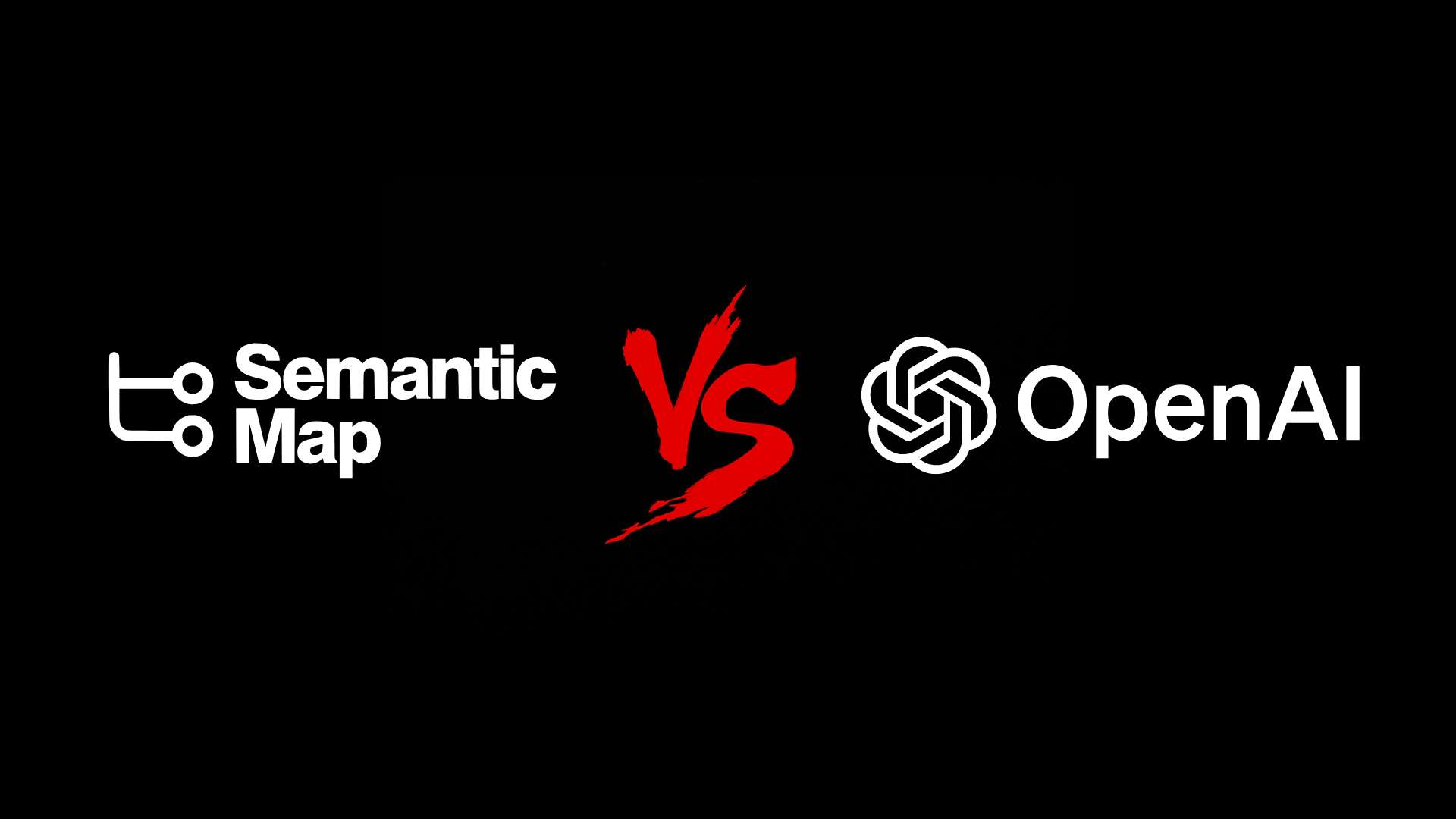
Comparison: ChatGPT vs. SemanticMap
ChatGPT – Strengths & Limitations
ChatGPT is a powerful general-purpose conversational AI, excellent for brainstorming, text generation, and simple Q&A. It can summarize texts and answer questions about provided content.
However, it lacks specialized features for qualitative research. It cannot perform speaker diarization, structured data export, or multi-document analysis guided by specific research goals. Traceability of findings is limited.
For sensitive research data, using a public tool like ChatGPT can raise significant data privacy concerns. The analysis is prompt-dependent and may lack the structured, reproducible nature required for rigorous research.
SemanticMap – Specially Developed for High-Quality Research
1. Professional Analysis for Research Teams
- •Speaker Recognition (Diarization): Automatic identification of who speaks when – ideal for focus groups or IDIs.
- •Topic Segmentation & Overview: Content is clearly divided into topic areas, with the ability to interactively compare in overview and detail view.
- •Archetypes & Demographics: Automatic creation of archetypes including short biographies – particularly useful for larger studies.
2. Structured Visualization & Data-Driven Insights
- •Spider Charts: Show characteristics at a glance, visually compare archetypes by attributes like values, attitudes, or behavior.
- •Quotes & Context Evidence: Insights are directly supported by authentic quotes – fully traceable and documented.
3. Multimodal Workflow & Project Control
- •Chat with Transcripts & Analysis Results: Simply ask about topics or patterns across all interviews – the answer contains structured insights including quotes.
- •Upload of Guidelines and Research Objective (optional): This guides the analysis specifically along your research questions and goals.
- •Flexible File Selection: Decide which interviews flow into the analysis – high control over project scope and focus.
Why SemanticMap is the Better Choice for Professional Researchers
| Category | ChatGPT | SemanticMap |
|---|---|---|
| Target Group | General purpose, creative, conversational | Research teams, agencies, insights experts |
| Model Strategy | General large language model (GPT series) | Use of specialized tools for transcription, translation, analysis |
| Qualitative Functions | Text summarization, Q&A, brainstorming | Speaker analysis, topic clusters, archetypes, visualizations, quotes |
| Adaptability & Structure | Prompt-dependent, unstructured output | High control through guideline upload, research objective, file selection |
| Visualization | None natively | Spider diagrams, archetype profiles, structured result views |
Conclusion
While ChatGPT is a powerful and versatile tool for a wide range of text-based tasks, it is not a specialized tool for qualitative research. For researchers who need accuracy, traceability, structured analysis, and data privacy, SemanticMap offers a purpose-built solution that addresses the specific challenges of qualitative data analysis. It transforms raw interview data into structured, actionable insights, a task for which general-purpose models like ChatGPT are not optimized.